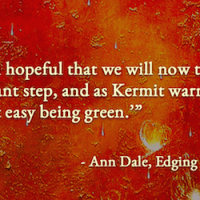Economic indicators, primarily gross domestic product (GDP) and job creation, have long been used to measure human progress. Many critiques exist and are accelerating as wealth disparities keep growing. But, a coalition of over 20 organizations, known as the G15+ collective, is urging policymakers to go beyond economics and adopt a more holistic view on well-being in Quebec. On January 18, 2022, the G15+ collective outlined 51 economic, social and environmental well-being indicators in the Indicateurs du bien-être au Québec report. According to Mia Homsy, head of the public-policy research group Institut du Québec and a co-leader of the initiative, “What we realize more and more these days, especially with the effects of the pandemic and the environment, is that it’s all interdependent.” The environmental advocates at David Suzuki Foundation, business leaders at the Fédération des chambres de commerce, labour relations specialists at Fonds de solidarité FTQ, and other groups bring diverse perspectives to the G15+ collective. This is undoubtedly a strength as it continues to evaluate and update the 51 indicators and bring well-being to the forefront of government decision-making.

Photo by Joshua Resnick from Canva
- Log in to post comments



CRC Comments